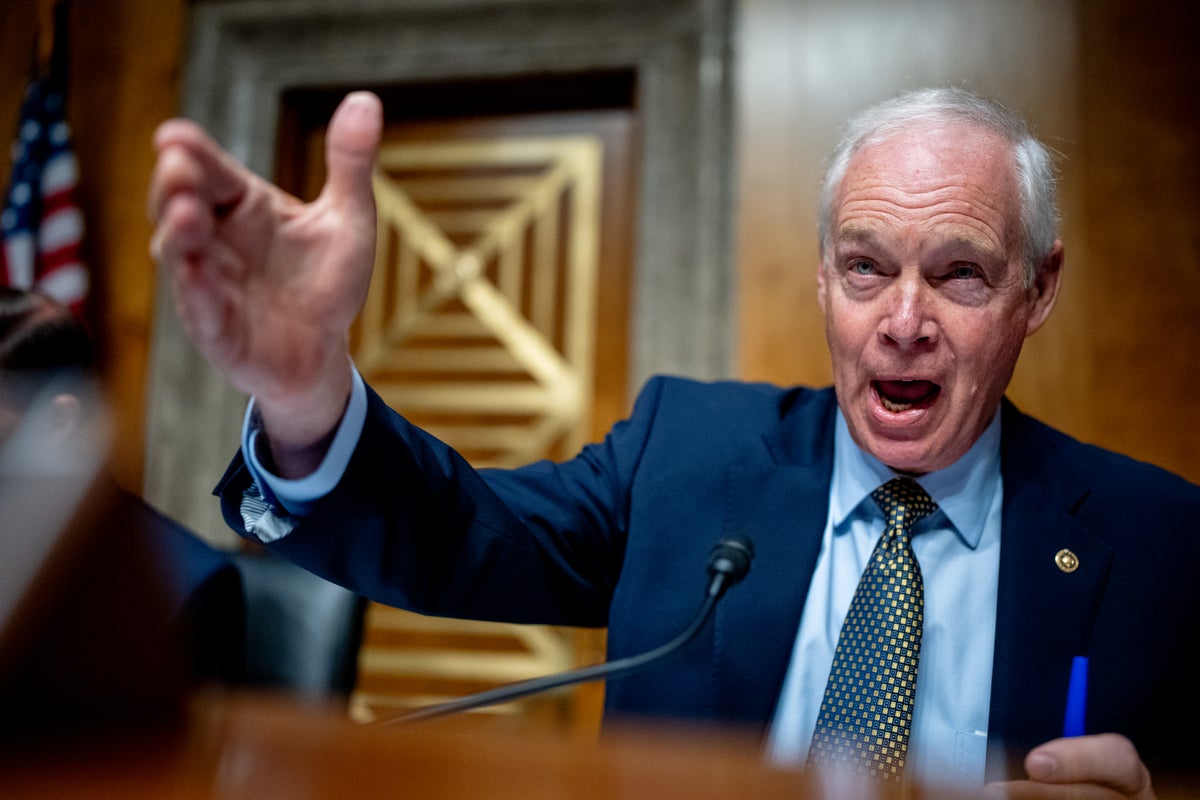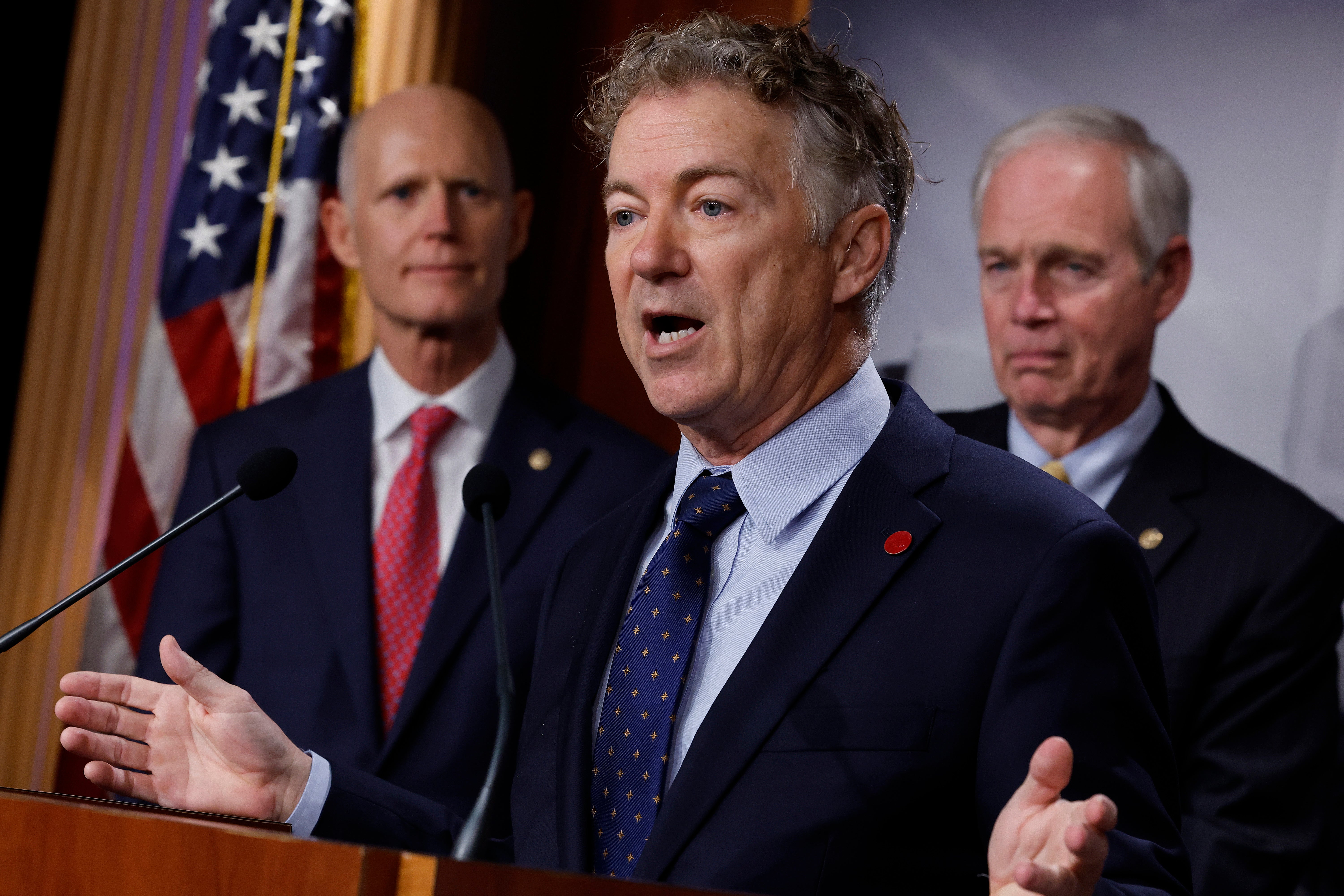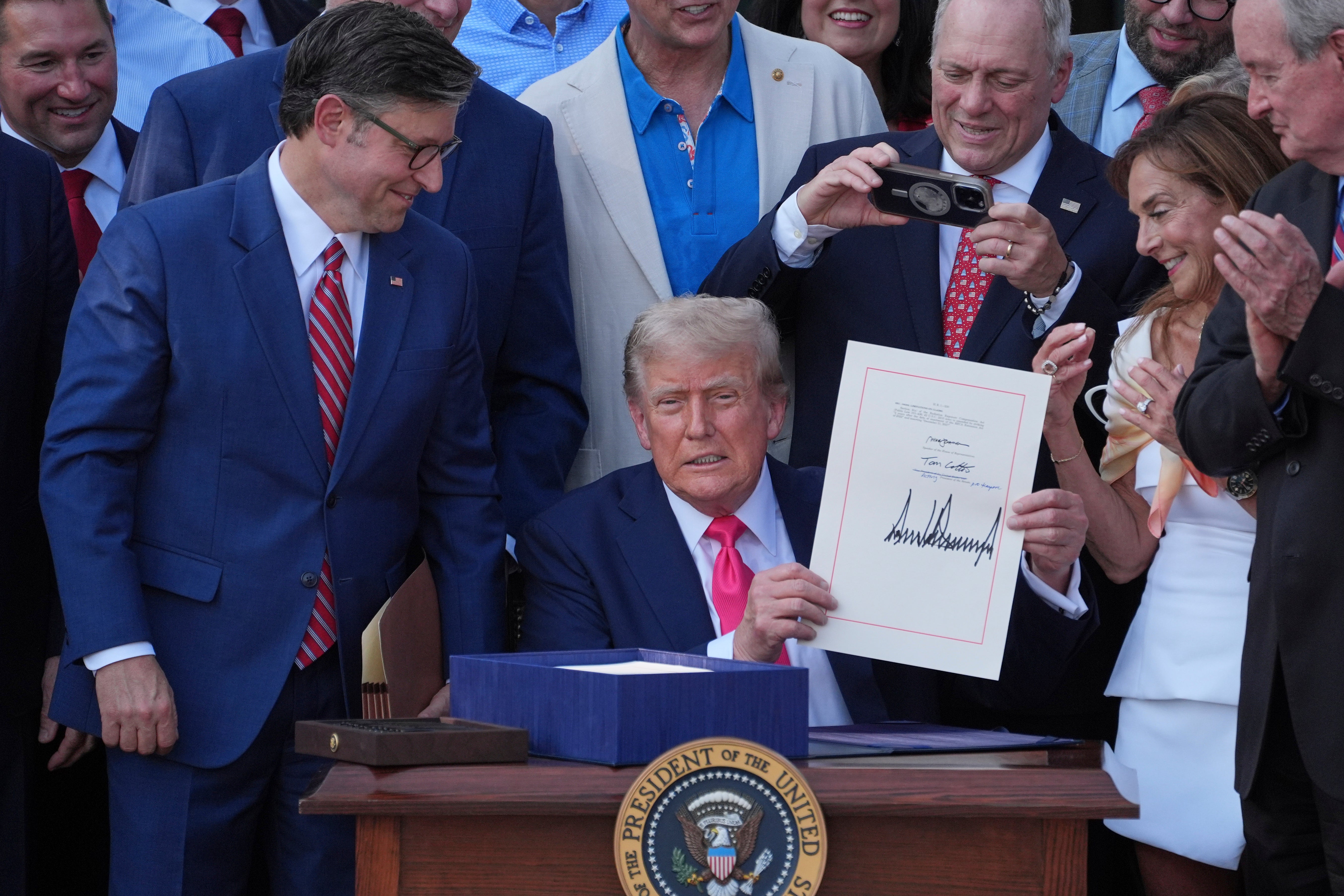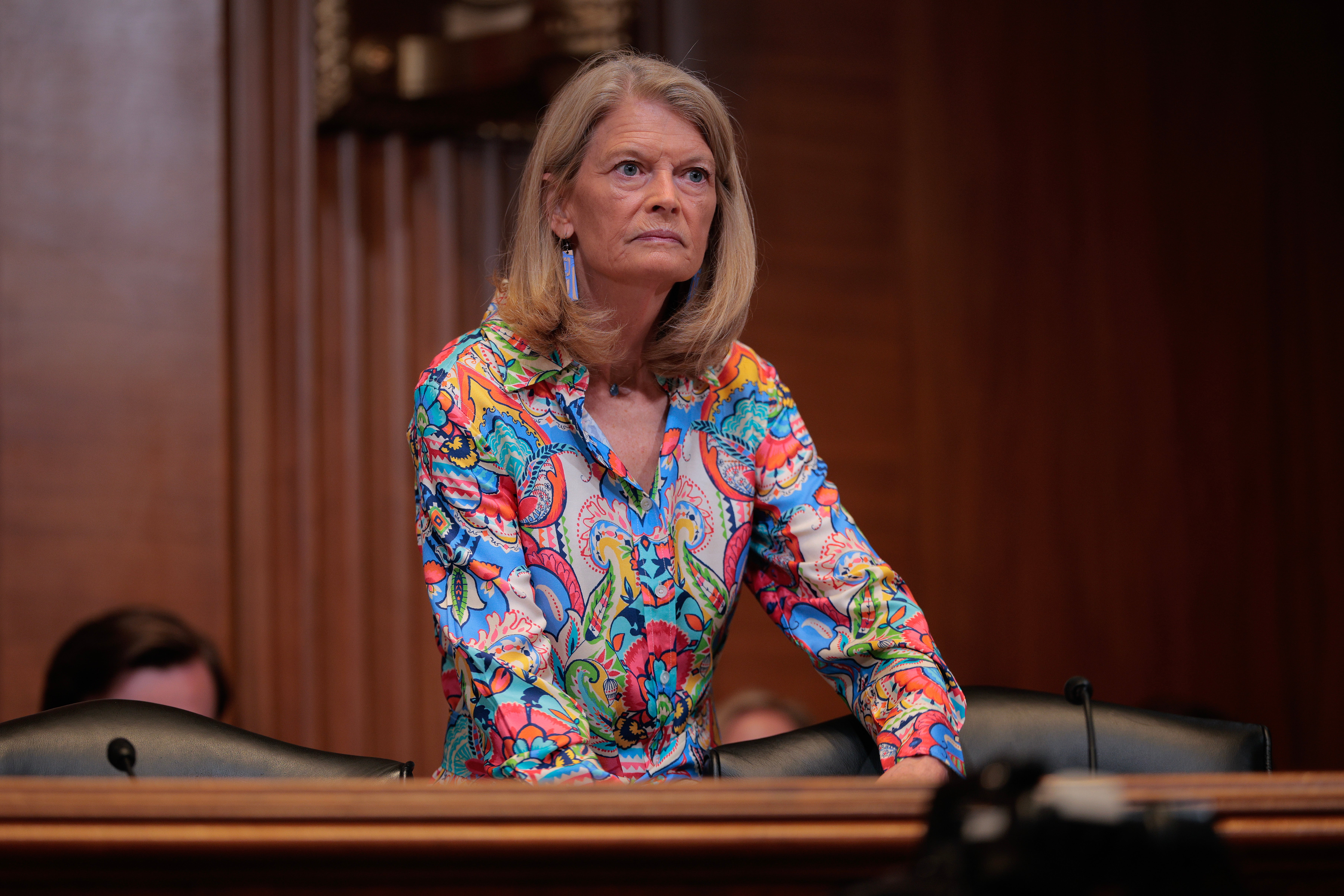
Throughout much of the debate about whether to pass President “One Big, Beautiful Bill,” Republicans from all stripes objected to the bill. Some thought that the spending cuts did not go far enough, while others fretted about cuts to Medicaid hurting rural hospitals.
But in the week since the House of Representatives passed it, many of those Republican Senators who previously voiced objections about the bill have changed their tune.
And some Republicans tell The Independent that they want to do another bill under the same method used to pass the last one.
No Republican criticized the legislation as much as Sen. Ron Johnson (R-WI), who cried that the bill did not go as far on reducing the deficit as he wanted and who went so far as to call the spending reductions “fake cuts.”
“Some of them are out in the future,” Johnson told The Independent. “We probably won't get them.”

But Johnson said he received assurances from Republican leadership that they would commit to additional spending cuts.
“We have a long way to go,” he said. “But the other thing I got was the commitment to a process to achieve and maintain a pre-pandemic level, knowing you can't do it in one bill.”
Johnson had also said he wanted significant changes to the Medicaid expansion that was put in place in the 2010 Affordable Care Act that Barack Obama signed, also known as Obamacare. But during the 27-hour vote-a-rama for the bill, Republican leadership did not allow for a bill by Sen. Rick Scott (R-FL) that would have wound down the Medicaid expansion to go to a vote.
“I think that was a huge opportunity blown,” he said. But rather than blaming Republican leadership, he blamed other people.
“It's partly because the lies the Democrats told, that the fact that the media wouldn't hold them accountable for lies,” Johnson said. “We were trying to preserve Medicaid for the disabled, children, for the vulnerable.”
That was not enough for Sen. Jon Ossoff (D-GA), who is up for re-election and who criticized the fact the legislation could risk rural hospitals closing.
“I don't want to hear ever again another Republican member of Congress talk about debts and deficit, because the cowards in the Freedom Caucus when they got offered a Big Mac on Air Force, one folded despite spending their entire careers and building their entire brands, pretending to care about the national debt.” Ossoff told The Independent.
The Republicans, who have 53 Senate seats, passed the bill using a process known as budget reconciliation, wherein they can pass legislation with a simple majority and avoid a filibuster. But the legislation must relate to spending.
Johnson said he hopes Republicans take up another reconciliation process despite the grueling day-long vote and prior bickering.

On the other end of the spectrum, Sen. Jim Justice (R-WV) expressed worry that the legislation’s proposal to cap taxes states levy on hospitals and nursing homes could hurt his state’s Medicaid program. But Justice, a freshman freshman and former governor where more than a quarter of the population is on Medicaid, seemed at peace with his vote.
“Time will tell whether or not we need to try to revisit,” he told The Independent. “I'm very hopeful that we do not revisit because I'm hopeful what's gonna happen is we're gonna take off as far as growing in our country.”
Justice said he was pleased with the fact Scott’s amendment did not get to a vote.
“I felt like we were pushing and going to cut Medicaid way too much, and at that point in time, in my opinion, what I did was put a stake in the sand for our rural hospitals,” he said. “We have to protect those rural hospitals because they are the lifeblood of our communities and everything. So I felt like, where we've settled out, we settled out in a good spot.”
Ultimately, the final bill would delay the implementation of the cap on provider taxes by a year to comply with the rules of budget reconciliation. But the threats to rural hospitals proved to be a dealbreaker for Sen. Thom Tillis (R-NC), who would oppose the bill and announce he would not seek re-election, and Sen. Susan Collins (R-ME), who faces re-election.
But one Republican who did not have to worry about provider taxes was Sen. Lisa Murkowski, since her state does not levy provider taxes. Senate Majority Leader John Thune and the rest of GOP leadership spent much of the process trying to buy off Murkowski.
Republicans ultimately reached an agreement with her to exempt Alaska from some of the biggest changes for the Supplemental Nutrition Assistance Program, also known as food stamps, like forcing the state to shoulder part of the cost of SNAP because of its high error rate. It also waived the work requirements for Medicaid within the bill.

Murkowski expressed hope that it would not be the “final product,” but the House of Representatives passed the exact bill she supported.
Still, Murkowski seemed uninterested in expressing remorse.
“You know what happened today? A whole new crisis,” she told The Independent. “And so I wish I had the luxury of time to regret things, but we just got to keep moving forward.”
It’s unclear what a second reconciliation bill would include. But Sen. Rand Paul (R-KY), who opposed the bill because it still exploded the national debt, said he had an idea of what might need to happen.
“I'm thinking of a major surgical event where all the congressmen go into the hospital at one time, and we have a spinal surgeon insert spines in them,” Paul told The Independent. “And if that happens, I think we could balance the budget.”
Trump administration sues California over egg prices and blames animal welfare laws
Where in the world is the FEMA head? Agency leader hasn’t been seen in over a week sparking concern
Putin has played Trump ‘like a violin’ but now US president is his ‘only answer’, ex MI6 boss says
FBI deputy chief Dan Bongino MIA from work after clash over Epstein files with AG Pam Bondi: report







